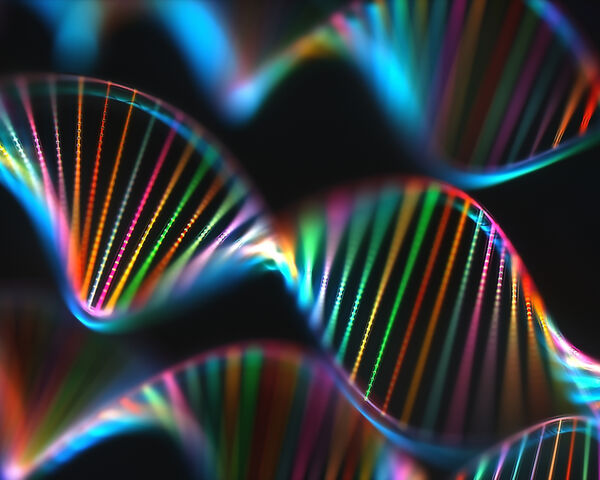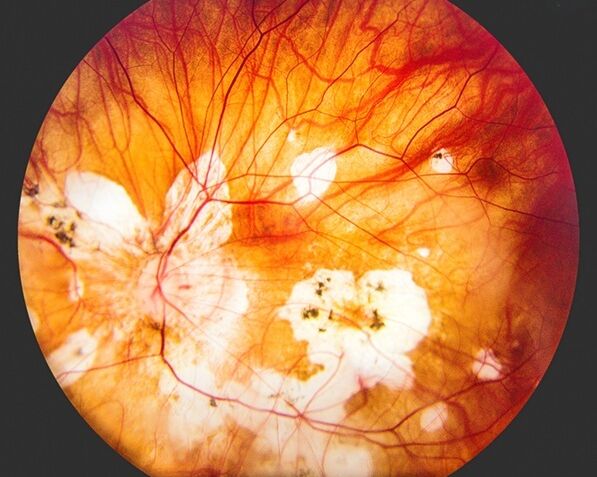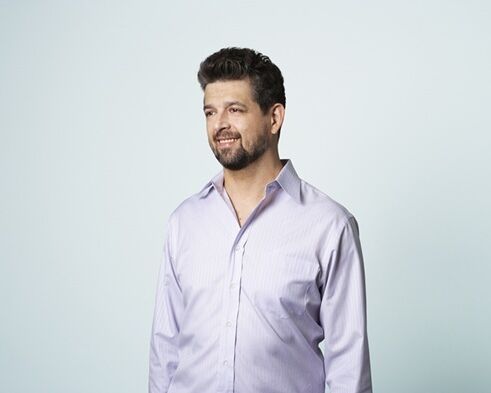New algorithm flags genetic weaknesses in cancer tumours

A study funded by Cancer Research UK and published today in the journal Nature Cancer, has found a new way to identify tumours which could be sensitive to particular cancer therapies and has been developed using data from NHS cancer patients in the 100,000 Genomes Project. The new algorithm, called MMRDetect, allows researchers to see which tumour cells have weaknesses in their ability to repair themselves and means cancer patients can receive personalised treatments.
The study, led by researchers from the University of Cambridge’s Department of Medical Genetics and MRC Cancer Unit, offers important insights into what causes damage to our DNA. Water and oxygen are essential for life but are also the biggest sources of internal DNA damage in humans.
The researchers identified nine DNA repair genes that are critical in repairing the human genome against natural damage caused by oxygen and water, as well as repairing and protecting it when cells make errors when they divide.
To identify these genes, the team used a genome editing technology called CRISPR-Cas9 to deactivate – or ‘knock out’ – repair genes in healthy human cells. In doing so, they observed changes in the genes that can be useful to spot what makes those genes stop working properly and what helps repair genes do their job.
MMRDetect was developed using whole genome sequencing data from NHS cancer patients in the 100,000 Genomes Project. The plan now is to roll it out across all cancers being looked at by Genomics England.
Because we are alive, we need oxygen and water, yet they cause a constant drip of DNA damage in our cells. Our DNA repair pathways are normally working to limit that damage, which is why, when we knocked out some of the crucial genes, we immediately saw lots of mutations.
Some DNA repair genes are like precision tools, able to fix very specific kinds of DNA damage. Human DNA has four building blocks: adenine, cytosine, guanine and thymine. As an example, the OGG1 gene has a very specific role of fixing guanine when it is damaged by oxygen. When we knocked out OGG1, this crucial defence was severely weakened resulting in a very specific pattern of guanines that had mutated into thymines throughout the genome.
When we knock out different DNA repair genes, we find a kind of fingerprint of that gene or pathway being erased. We can then use those fingerprints to figure out which repair pathways have stopped working in each person’s tumour, and what treatments should be used specifically to treat their cancer.
Dr Serena Nik-Zaina
Senior author and Cancer Research UK Advanced Clinician Scientist at Cambridge University’s MRC Cancer Unit
The study suggests that these findings could serve as crucial clues or signposts – ‘biomarkers’ – in precision medicine, to better target treatments. Knowing which genes are failing means doctors can choose medicines known to work most effectively on those genes, and therefore will be the most beneficial for that patient.
The breakthrough demonstrates the value of researchers working with the 100,000 Genomes Project, a pioneering national whole genome sequencing endeavour.
We are very excited to see such impactful research being supported by the 100,000 Genomes Project, and that our data has helped to develop a clinically significant tool. This is a fantastic example of how the sheer size and richness of the 100,000 Genomes Project data can contribute to important research.
“The outcomes from Dr Nik-Zainal and her team’s work demonstrate perfectly how quickly and effectively we can return value to patient care by bringing together a community of leading researchers through Genomics England’s platform.
Parker Moss
Chief Commercial and Partnerships Officer at Genomics England
To be most effective, the MMRDetect algorithm could be used as soon as a patient has received a cancer diagnosis and their tumour has been sequenced. The team believes that this tool could help to transform the way a wide range of cancers are treated and potentially save many lives.
Determining the right treatments for patients will give them the best chance of surviving their disease. Immunotherapy in particular can be powerful, but it doesn’t work on everyone, so figuring out how to tell when it will work is vital to making it the most useful treatment it can be.
Our ability to map and mine useful information from the genomes of tumours has improved massively over the past decade. Thanks to initiatives like the 100,000 Genomes Project, we are beginning to see how we might use this information to benefit patients. We look forward to seeing how this research develops, and its possibilities in helping future patients.
Michelle Mitchell
Chief Executive of Cancer Research UK
This study was funded by Cancer Research UK (CRUK), Wellcome, Medical Research Council, Dr Josef Steiner Foundation and supported by the Cambridge NIHR Biomedical Research Campus.
- Reference
Xueqing Zou et al., ‘A systematic CRISPR screen defines mutational mechanisms underpinning signatures caused by replication errors and endogenous DNA damage’, Nature Cancer (26 April 2021). DOI: 10.1038/s43018-021-00200-0. https://dx.doi.org/10.1038/s43018-021-00200-0
- Notes
The study points out that many gene knockouts did not show mutational signatures under these experimental conditions, but this does not mean that they are not also important DNA repair proteins.
- Media enquiries
Tom Almeroth-Williams, Communications Manager (Research), University of Cambridge: [email protected] / tel: +44 (0) 07540 139 444
Dr Serena Nik-Zainal, MRC Cancer Unit, University of Cambridge: [email protected]
- About the University of Cambridge
The mission of the University of Cambridge is to contribute to society through the pursuit of education, learning and research at the highest international levels of excellence. To date, 110 affiliates of the University have won the Nobel Prize.
Founded in 1209, the University comprises 31 autonomous Colleges, which admit undergraduates and provide small-group tuition, and 150 departments, faculties and institutions. Cambridge is a global university. Its 19,000 student body includes 3,700 international students from 120 countries. Cambridge researchers collaborate with colleagues worldwide, and the University has established larger-scale partnerships in Asia, Africa and America.
The University sits at the heart of the ‘Cambridge cluster’, which employs 60,000 people and has in excess of £12 billion in turnover generated annually by the 4,700 knowledge-intensive firms in and around the city. The city publishes 341 patents per 100,000 residents.
- About Cancer Research UK
- Cancer Research UK is the world’s leading cancer charity dedicated to saving lives through research.
- Cancer Research UK’s pioneering work into the prevention, diagnosis and treatment of cancer has helped save millions of lives.
- Cancer Research UK has been at the heart of the progress that has already seen survival in the UK double in the last 40 years.
- Today, 2 in 4 people survive their cancer for at least 10 years. Cancer Research UK’s ambition is to accelerate progress so that by 2034, 3 in 4 people will survive their cancer for at least 10 years.
- Cancer Research UK supports research into all aspects of cancer through the work of over 4,000 scientists, doctors and nurses.
- Together with its partners and supporters, Cancer Research UK’s vision is to bring forward the day when all cancers are cured.
For further information about Cancer Research UK’s work or to find out how to support the charity, please call 0300 123 1022 or visit www.cancerresearchuk.org. Follow us on Twitter and Facebook.


